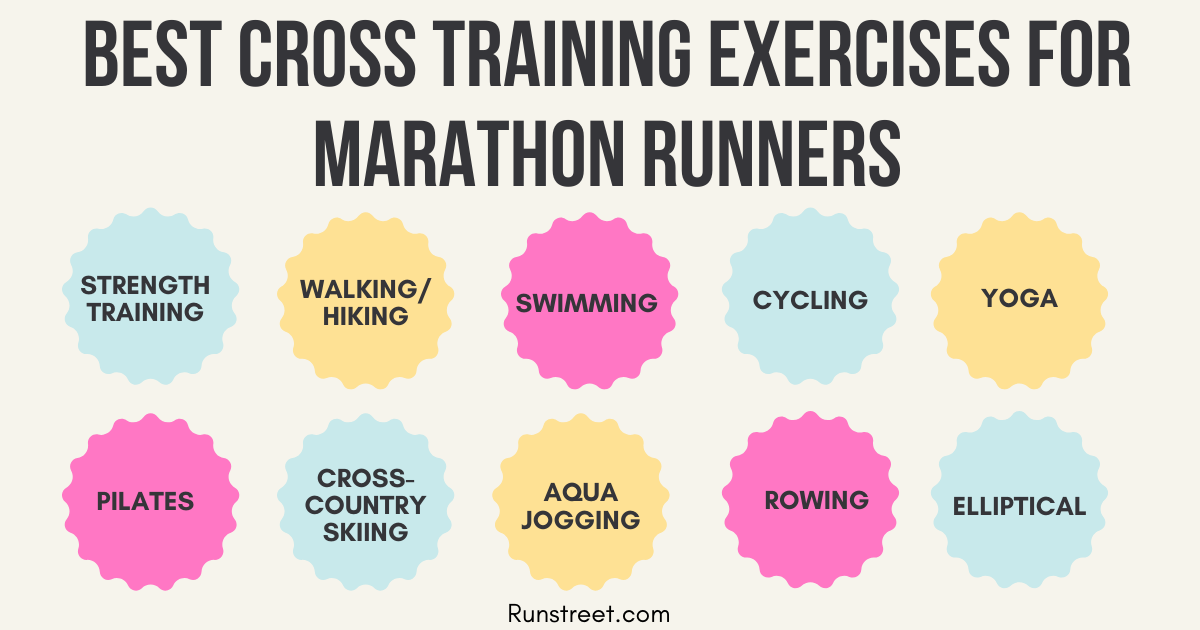How to Train for a Marathon - Guide from a Run Coach
Photos by Marques Jackson Photography.
By Marnie Kunz,
Certified run coach and trainer
If you’re wondering how to train for a marathon, this guide will go over all the basics you need to know. As a running coach, I have helped many runners train for marathons, including the NYC Marathon, Boston Marathon, London Marathon, Chicago Marathon, and more. Whether it’s your first marathon or your tenth, following a strategic training program will help you be well-prepared to run 26.2 miles. Sometimes, runners I coach think they’re “not fast enough” or not a “real runner,” but if you run, you are a runner. And you do not have to be “fast” or even have a pace goal to benefit from a training program. A smart marathon training plan will help you perform at your best and enjoy race day as much as possible. A good marathon training program will also reduce your risk of running injuries, helping you to run strong and stay healthy.
If you need a marathon training plan designed for your fitness goals and race, I offer a Customized Marathon Training Plan. I create a personalized training plan with strength training workouts, and different run training workouts to suit your fitness level and marathon goals. Leave your training to a professional and get the support you need to slay your big race with my custom training program.
How Far Is a Marathon? The Basics
A marathon is 26.2 miles or 42.2 kilometers. A marathon is the gold standard for distance runners, offering a challenging race that allows all levels of runners to test their mettle. Unlike some shorter races, a marathon requires a significant time commitment and careful planning to successfully cross the finish line. A good marathon training plan will set you up for success on race day.
Related Post: Training for a Marathon for Beginners
Marathon Training Gear Essentials
Running gear checklist.
If you’re considering how to train for a marathon, the first step is to get the right gear for training. Running shoes are your most important piece of equipment for marathon training. Make sure your running shoes are not overly worn as this is a common cause of running injuries. Change your shoes every 300 to 500 miles to give your legs and feet the support they need for training.
My best advice for finding the best pair of running shoes for you is to go to your local running store and try on different shoes. Do a treadmill test and make sure the shoes are comfortable on the run. Get a half size larger than your regular shoe size as feet swell during longer distance runs, which you’ll be doing a lot of while you train for a marathon.
Next, invest in some moisture-wicking running clothes to keep you comfortable on the run. Sweat-wicking shirts, running tights, and socks will help keep your body cool and dry while you train.
Marathon training takes time and a smart training plan to be successful.
You’ll also need some hydration gear for your long runs. A running belt or hydration backpack allows you to carry your running fuel and water on long runs. You can also use a handheld water bottle or a combination of gear to carry your essentials on the run. Find the gear that’s most comfortable and functional for your training and preferences. I usually run with a running fuel belt for medium to long runs and a hydration vest or running hydration backpack for long runs and trail runs.
Related Post: What to Wear Running - Checklist from a Run Coach
How to Train for a Marathon
Here’s my top coaching advice on how to train for a marathon. I’ve broken down the training into sections. First, choose your marathon race and then you can find a training program that suits your schedule and race goals.
Related Post: 15 Most Scenic Marathons in the World
Follow a Training Plan
First, find a marathon training program. A training plan designed by a running coach will give you the best chance of running your marathon well while reducing your risk of getting injured. The Runstreet Customized Marathon Training Plan is our top training program for marathon runners. With this personalized training program, I’ll be your coach and will design a customized training schedule for you, complete with running and strength training workouts.
A training plan will help you build your endurance and increase your weekly mileage gradually to help prepare you for running 26.2 miles on race day. Whether you want to PR in your next marathon or run your first marathon, a training program is the most important ingredient that will help you hit your peak performance on race day.
Tips for base runs/Zone 2 training.
Do Base Runs
A base run is a relaxed pace run that will be the majority of your workouts when you’re marathon training. Base runs, also known as Zone 2 training, build your endurance. These runs should be at a conversational pace. If you train with a heart rate monitor, your heart rate should stay in the range of 60 to 70 percent of your max heart rate. On the RPE scale, your run will feel like a 4 or 5 out of 10 on the effort scale (with 10 being your hardest effort, an all-out sprint).
Long Runs
Long run tips.
A weekly long run is another essential part of marathon training. Do your long run at a relaxed pace, and focus on your hydration and fueling strategy to prepare for race day. Most training plans will increase our long run distance incrementally to build your stamina for race day while minimizing your risk of injuries.
Related Post: 10 Long Run Tips from a Run Coach
Some runners also do a half marathon as part of their long-run training. Running a half marathon offers a milestone long run for new marathoners and a benchmark run for more advanced runners with pace goals. Running a half is optional and may depend on your training schedule and goals.
Speed Workouts
For intermediate marathoners with time goals, speed workouts are crucial to help you get faster and PR. Speed workouts can vary and may include tempo runs, which are steady-state effort runs at a “comfortably hard” pace. Interval workouts such as mile repeats and Yasso 800s are also helpful speed workouts for marathon runners with specific pace goals.
Related Post: Marathon Pace Chart for All Levels
Doing warm-ups is especially important before speed workouts as this will help prime your muscles to run fast and ease into the workout. Do some dynamic stretching (stretching that involves continuous movement), such as butt kicks and leg swings, before your speed workout to warm up.
Related Post: 10 Best Hip Stretches for Runners
Strength training will make you a better runner.
Strength Training
Strength training should be an integral part of your marathon training program. I have met too many runners who neglect strength training, which often leads to poor running form, muscle imbalances, and even injuries. According to the National Academy of Sports Medicine, strength training offers many health and performance benefits for runners, from better endurance and power to a reduced risk of injuries.
Do two strength training workouts per week to strengthen your muscles and improve your running performance. You may want to start with bodyweight exercises or some dumbbell workouts. Since marathon training is already time-consuming, I recommend focusing on compound exercises to get in an efficient workout that strengthens multiple muscle groups without having to do individual exercises for each muscle you want to target.
Best cross training exercises for marathon runners.
Cross Training
Cross training for runners includes any exercise that’s not running. Cross training gives your body time to recover from the repetitive motion of run training while still giving you fitness benefits. Some low-impact cross training workouts that are excellent for runners include walking, cycling, swimming, yoga, pilates, and hiking.
When you’re exploring how to train for a marathon, a well-rounded training program should include some cross training workouts.
Related Post: 10 Best Marathon Cross-Training Workouts from a Run Coach
Rest and Recovery
Rest days are just as important for your body’s performance as long runs and base runs. Most runners need at least one rest day a week while marathon training. Also include some recovery activities in your routine, with foam rolling, and some warm baths or ice baths to stimulate muscle recovery.
Related Post: 10 Best Marathon Recovery Tips
Nutrition
Nutrition tips for runners.
You are what you eat, as they say, and for marathon runners, this is especially true. I’ve trained too many runners who don’t eat enough nutrients, and this can seriously affect performance. Carbohydrates should be your best friend as you’re training, as they offer energy for your runs. Carb-rich foods such as whole grain bread, brown rice, quinoa, sweet potatoes, and oatmeal are excellent options to bump up your carb intake and get the energy you need for long runs.
You will also need running fuel on your long runs. For any run that is over an hour long, your body will run out of stored carbs for energy, or glycogen. To keep yourself from crashing, bring some running fuel such as energy gels, chews, or snacks on your long runs. It’s the perfect time to experiment with different types of fuel to find the type and flavors that work best for your digestion and tastes.
To hit your peak performance, you’ll also need lean protein and healthy fats in your diet. Some great protein options include lentils, tofu, beans, lean meats, and Greek yogurt. Foods with healthy fats include avocados, nuts, olive oil, salmon, chia seeds, nuts, and flaxseeds.
Related Post: What to Eat for Running - Tips from a Dietician
Hydration
Staying hydrated will help prevent muscle cramps and improve your marathon performance. Bring hydration on your long runs and on training runs when it’s hot or humid outside. You have different options for carrying your hydration - including handheld water bottles, a fuel belt with water bottles, or a hydration vest or backpack. Add a sports drink or electrolyte mix to your bottle to replenish the fluids your body loses through sweat on the run.
Marathon Training Tips
Build your mileage gradually.
Follow a training plan.
Eat whole grains and plenty of carbohydrates.
Bring running fuel and hydration on your long runs.
Experiment with different fuels and accessories to find the best gear and methods for staying fueled and hydrated on your runs.
Strength train twice per week.
Take at least one rest day a week.
Foam roll to improve your muscle recovery.
Train on terrain and in conditions similar to what you’ll be running in on race day.
Enjoy your race! Running a marathon is a huge accomplishment and one you will always remember.
Need more tips on how to train for a marathon? Follow @Runstreet on Instagram to get more running tips in video form, and sign up for our Wellness Wednesday newsletter for free training tips delivered to your inbox each week.
Get your own Customized Marathon Training Plan designed by Coach me just for you. Slay your big race with a smarttraining plan that will get you to the finish line happy.
Related Posts: 16-Week Marathon Training Plan, 12-Week Marathon Training Plan for Intermediate Runners, Tips for Running a Marathon for Beginners
Marnie Kunz is a NASM-certified trainer and USATF- and RRCA-certified running coach, a dog lover, an Akita mom, and the founder of Runstreet. She specializes in helping runners get faster and stronger and helping beginners elevate their fitness levels. She is based in Brooklyn, New York.









